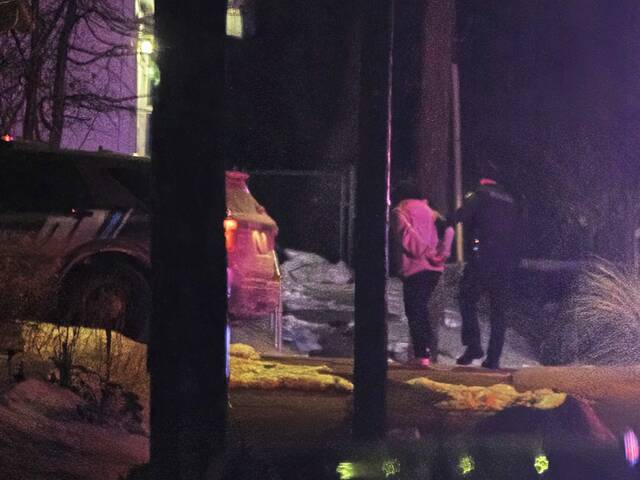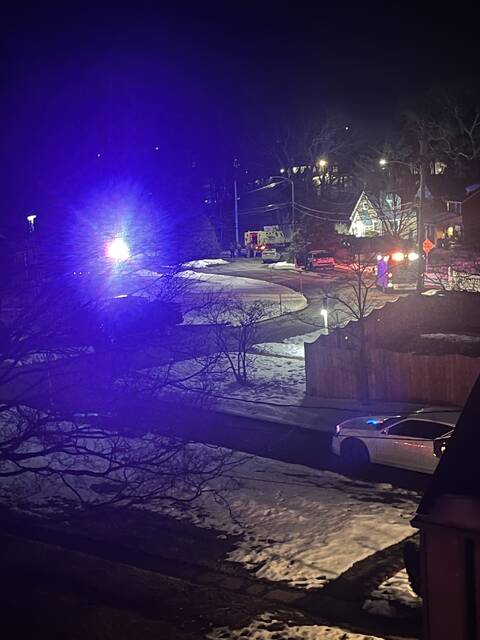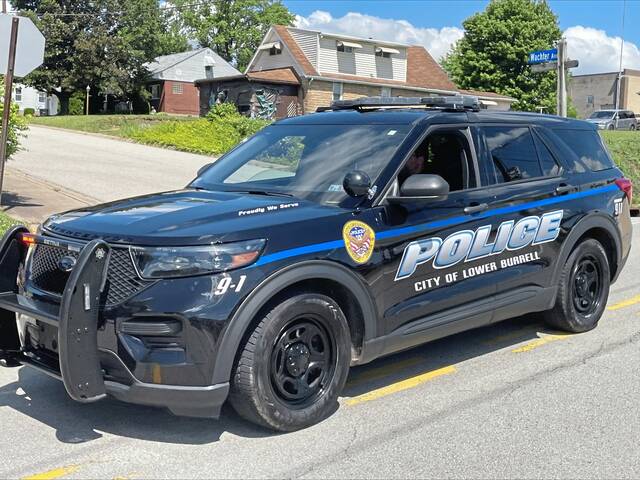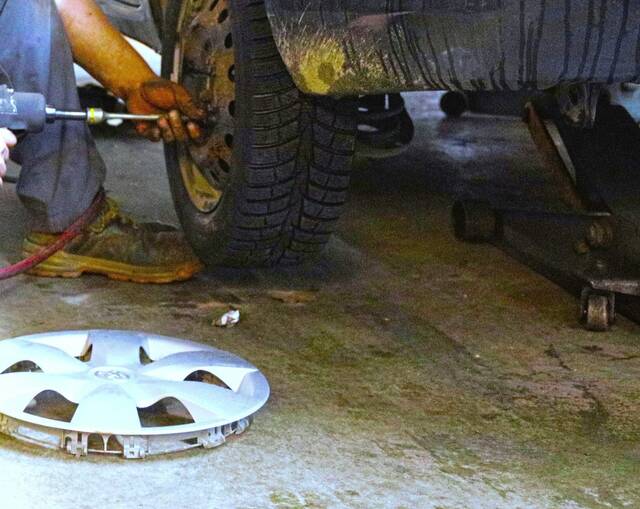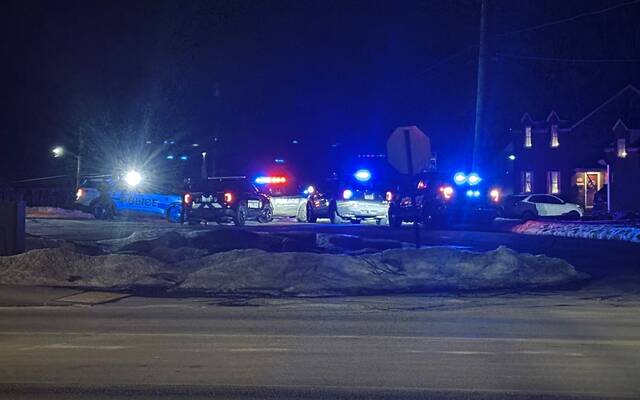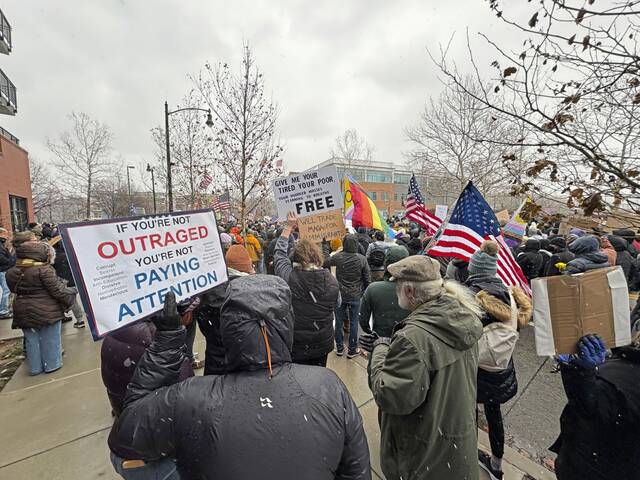Gov. Tom Wolf wants to charge Pennsylvania communities a fee for state police coverage, regardless of whether the municipality has its own police force, according to his 2020-21 state budget proposal.
A number of local police departments in the Alle-Kiski valley rely on state police for coverage of major crimes and accidents and, for some thinly staffed departments, on-call coverage.
Apollo Mayor Cindee Virostek said the borough does not rely heavily upon state police, using them primarily for major crimes such as murders and fatal car crashes, which are rare.
The borough has cooperative agreements with neighboring departments to fill any gaps in coverage not filled by its own officers, she said. The department has one full-time officer and one part-timer and operates on a $122,000 budget.
“It’s $9,000 this year and that could be $20,000 next year. This is costly to us,” Virostek said of Wolf’s proposal. “Plus, we already pay for state police services in our state taxes.”
Virostek is looking to join efforts to stop the governor’s proposal with state associations representing municipalities.
“If you are going to tax someone, go after the communities that are using the state police to cover shifts, because they’ve dismantled their police department,” she said. “Why should we pay for them?”
Virostek and other mayors pointed to Hempfield and Unity townships. Wolf’s proposal calls for those municipalities to pay about $76 per resident, according to state data. Neither township has its own police force and both rely on state police coverage.
Freeport Mayor James E. Swartz said state police are on call for the borough for about 25 hours a week, with troopers responding to about two or three calls a month. State police do not patrol the borough but respond when they are needed, he said.
The governor’s proposal calls on Freeport to pay about $53,000 annually, which comes out to about $31.20 per resident. The department’s police budget is about $300,000 a year.
He thinks communities should be charged differently, especially the ones that rely heavily or totally on the state police.
“If you don’t have any police and you just have the state police, like Hempfield, hell yeah, they should pay,” Freeport Mayor James E. Swartz said. “They should go after the other communities who have been on a free ride.”
But Hempfield and Unity officials said they don’t think they should pay for the police coverage at all.
“We believe that our residents are essentially paying for state police coverage with our state income taxes, state taxes in general,” Unity Supervisor Mike O’Barto said. “Our residents are paying a tremendous amount of money to the state.”
Hempfield Supervisor George Reese agreed.
“(Wolf has) done this before. It’s a proposal, request,” Reese said. “I don’t agree with it. Our residents pay their fair share in taxes.”
Officials in communities such as Freeport that use some state police coverage think that if they have to kick in some money, it should be much less than what was proposed by the governor.
“I disagree with that 100%,” Swartz said of the rate proposed by Wolf, adding that the proposed payment of $53,000 would be better spent on paying for another local officer.
Wolf has made similar proposals over the past few years, but this year’s formula is a bit different. The fees are based on several factors: the cost to operate the state police station that covers a respective area, whether the municipality has its own police, the median income of the municipality and the types of state police services used.
The proposal would bring in $136 million, according to state figures. Four additional state trooper cadet classes could begin in 2020-21 with the funding, Wolf said in his budget proposal.
“The (Pennsylvania State Police) has developed a model that is fair, reasonable and a good starting point for ongoing discussions,” Wolf wrote.
In past years, Wolf has proposed a $25-per-person fee and a sliding-scale share based on a municipality’s population. For the past several years, fees and gas taxes paid by motorists have been directed to support state police costs, rather than to fix roads and bridges.
Officials estimated in 2017 that it costs state police almost $600 million to provide services to municipalities without a full-time force. That equates to about $234 per resident in those communities.
State legislators have a deadline of June 30 to adopt a new spending plan.



